A Day at the Races
This is about horses and how they saved my family’s life, and how, one day, I would come to repay the favor.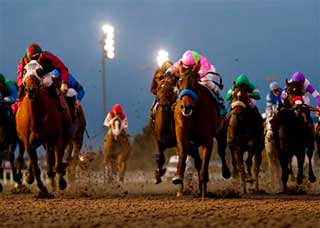
Letter From the West is a monthly series by Deanne Stillman that explores what is going on in our wide open spaces and what we do to one another and all that lives there.
This is about horses and how they saved my family’s life, and how, one day, I would come to repay the favor. But in a way, it’s also about gravy.
It all has to do with my mother, one of the first women in the country to ride at the racetrack professionally, as an “exercise boy.” For five years, every morning before dawn, she would head to Thistledown Park, the track across the street from our apartment in Cleveland, and gallop thoroughbreds around the turf for their morning workout. Sometimes my sister and I would sit on the rail and watch, and after these early-morning sessions, we would all head to the track cafeteria for breakfast, where everything was covered with gravy or cream sauce, and you could get as many helpings as you liked.
That’s where I first met the oddballs of the world, and they were all sitting at our table. There were poor young jockeys who had trained on nags and fled the hollows of Appalachia hoping for a break, grooms as old as the stars who seemed happy to live in their small quarters next to the horses, toothless track wags who eked out food money at the low-ball betting windows and made their home at motels across the street, and lifelong circuit trainers who had finally come into possession of a winner. These outcasts were kindred spirits, I later realized, people who made us feel at home after we had lost ours.
You see, after my parents divorced, my mother, sister and I moved from an upper-middle-class suburb to a working-class one, and suddenly found ourselves shunned by old friends and even some relatives, simply because of an address change. My mother needed a job, and her most immediately marketable skill — horseback riding — enabled her to find employment on the track. The community was driven by heart, uplifted by belief in the racetrack version of sunrise (as my mother always said, at the track, you have a new chance with every race), and held together by first-hand knowledge that outside the track there was a very tough world.
Through it all, there were the horses, everyone’s best friends and saviors. They seemed to offer a kind of protection; to me, as lots of little girls come to find out, it was by dint of their size and power, even — perhaps especially — when they were in their stalls and being still, nickering when I scratched their flanks. One of my fondest memories is walking through the barns in the morning after it had snowed, enveloped by great puffs of steam coming from the horses as they breathed the cold air. There was safety in the vapors, in the sound of the exhales up and down the row, as if they were blowing out the cares of the world, like Melville’s mythical great white creature, I see now, echoing the Earth’s very rhythm.
Sometimes, I would sit on a bale of hay inside the entrance to the barn and listen to the horses, and after awhile, my breathing would sync up with theirs and I would forget about my shattered life from which my father had suddenly vanished. But most of all, I loved to watch the horses run. Like a lot of people, I was caught up in the beautiful image — manes and tails flying and legs extended — and as the horses galloped, they carried us all across the finish line and beyond.
I have never seen my mother happier than when she was on a galloping thoroughbred on those mornings long ago, and looking back, I understand that they were taking her away from all the constraints of our culture at that time — she was “headstrong,” she “didn’t play by the rules,” she was a “divorcee” (a derogatory, now arcane term which suggested some sort of defect; in film, this was a role generally played by Barbara Stanwyck). As the old saying goes, “Horses let us borrow their freedom,” and for me, too, the horse became my means of escape.
When not at the racetrack, I lost myself in tales of the West, reading the works of Zane Grey and sagas of Crazy Horse, Calamity Jane and Buffalo Bill. I imagined myself right there with them, galloping across the plains and red-rock mesas, and in tribute to my fantasies, my mother bought me a Davey Crockett raccoon cap and a buckskin jacket with fringe. Unable to afford travel to distant lands, she would sometimes arrange a holiday weekend at the airport motel, where the three of us, my mother, sister and I, would climb up into the observation tower and watch planes take off and wave goodbye.
Years later, I was on a plane myself, with a sky-blue Tourister suitcase that my mother had bought for me, on my way to college in New Mexico. The suitcase had my initials on it and I knew that that was her way of sending me off to the Promised Land. Soon I, too, began running with the horses, across desert trails and washes, across playas and mountain meadows, the very paths that my frontier heroes had traveled, right into the heart of the old frontier.Atop a horse on my wilderness journeys, I understood that I wasn’t just riding for myself, I was carrying my friends who longed for wide-open space and freedom. (When I wrote home about my adventures, the first thing everyone asked for was pictures.) More recently, as I continue my wilderness treks, I have been carrying my mother, who is not up to riding anymore.
But she still loves a day at the races. During our last visit to Hollywood Park, we made our picks for the first race and headed for the betting windows. We had an experiment going: What works best — hunch betting or studying the charts? I don’t like to study charts, so my betting theme for the day was “the elements.” I would bet on any horse whose name or stats referred somehow to earth, air, fire or water. But there was a problem. Not only do I not like to study charts, I don’t like to waste my money on betting. So Mom fronted me twenty bucks, which made for many trips to the two-dollar window that day. She, on the other hand, having spent all those years exercising racehorses to the tick of a trainer’s clock, would make her picks based on past performance, combined with insider knowledge of jockeys, trainers and so on.
As we approached the windows, there occurred something that would forever crank up Southern California in our estimation. We saw a sign: Casserole Counter. Could this be? Do they really mean casseroles, or is it just some abomination of language, so often wrought these days? Quickly scanning the menu, Mom and I rejoiced at truth in advertising. For your dining pleasure, there was tuna casserole, country-style meat loaf, beef stew — and yes! — turkey a la king! We hastily placed our bets — me on Black Eyed Susan for the earth connection, and Mom on Roving Gal, who had won three of the past five races — and headed for the counter.
We chowed down happily and heartily and then proceeded to the rails to watch the race. Alas, my urge to follow the elements that day led to a loss, whereas my mother, who had done her homework, came out ahead. But as always, for a little while, we had been transported by the fleet four-leggeds to a dreamscape of possibility and skies that are not cloudy all day.
Soon after, I learned of the massacre of 34 wild horses outside Reno, Nevada. As I looked into that incident, I began hearing about the plight of wild horses that lived in remote areas of the West. These were the spiritual, historical, and perhaps actual descendants of horses that once carried Sitting Bull and Billy the Kid and all of the great icons of American freedom. There weren’t many left nowadays and to make way for new developments and new gas and oil wells on the range, they were being rounded up and taken away from the lands where they had lived for hundreds of years.
In all my travels across the West, I hadn’t seen wild horses, for they lived in remote pockets to hide from civilization. But now I had to visit them, before they disappeared forever from a rapidly changing world. So I headed for Nevada where most of the country’s mustangs still roam.
I arranged with a friend to take me into the Virginia Range outside Reno. We headed up the mountains in her four-wheel drive, and, after awhile, the rutted road narrowed into a path and, in the higher elevations, we spotted a small band in the juniper and sage. They were a small band of mares and foals that had not yet shed their winter coats, and in every way they were perfect. A stallion stood nearby and watched. The sight was literally breathtaking, the very essence of freedom. My breathing slowed and I felt comfortable inside my skin: home at last.
These animals were surviving members of the herd that had been gunned down prior to my visit. By then, I knew that it was time to write about horses, the noble animals that had helped my family survive, the ones in whose hoofsparks this country was born. The story of the wild horse in the American West became the subject of my book, “Mustang.” More recently, I learned of another vanishing — that of the Casserole Counter at Hollywood Park. Now I make turkey a la king at home, and whenever my mother visits, we watch Westerns.
Your support matters…Independent journalism is under threat and overshadowed by heavily funded mainstream media.
You can help level the playing field. Become a member.
Your tax-deductible contribution keeps us digging beneath the headlines to give you thought-provoking, investigative reporting and analysis that unearths what's really happening- without compromise.
Give today to support our courageous, independent journalists.

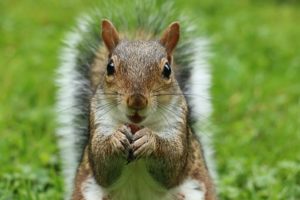
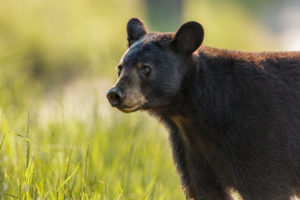

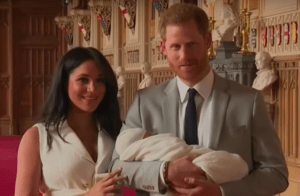
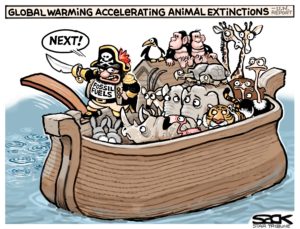
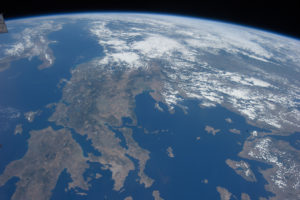


You need to be a supporter to comment.
There are currently no responses to this article.
Be the first to respond.